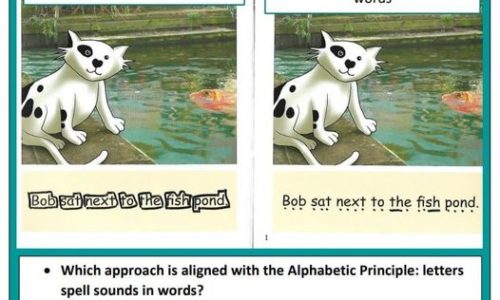Reading fluency is a precondition for reading comprehension. If the reader is not fluent he/she will struggle to put the words together in a sentence and make meaning of it. When short term memory is taken up by working out what the words are on the page, it can’t focus on what they mean. So […]
Read MoreApproaches to Teaching Reading
Whole-word reading vs decoding – why does it matter?

Many schools are moving away from teaching children to recognise whole words to teaching them how to decode. It is important for anyone reading with children, or teaching them to read, to understand why this is so significant. The approach of teaching kids to recognise whole words is a ‘top down’ approach. It requires children […]
Read MoreWhy and how to Boost Tier 2 words
Many of our students will need a boost to their vocabulary. This may be because they have missed out on learning, or that remote learning is not as effective as in-school learning (especially for children with a learning disability). As we know, language development is a crucial element in reading comprehension (check out ‘The Simple […]
Read More‘Merry Christmas!’ and ‘incidental phonics’
It is that time of year and, although in this COVID year everything seems subdued, we have Christmas messages, wishes and advertising everywhere. Children will be busy writing lists for Santa and decorating Christmas cards. You just can’t escape the words ‘Merry Christmas’! This is a good opportunity for some ‘incidental phonics’ teaching. So, what […]
Read MoreWhy do older, struggling readers need age-appropriate books?

Older, struggling readers often have gaps in the their phonics knowledge and skills. They find alternative spellings particularly confusing. Many suffer from low self esteem so offering them decodable materials that are age-appropriate is vital. Vital because if the reading materiasl can engage the disaffected reader, his/her motivation to try and read will grow. Without […]
Read MoreParent shines a light on the science of reading
It is so sad to hear when a young child says he wants to kill himself because he can’t read as described in the interview at the end of this piece. It is uplifting to hear how a parent turned this child’s life around by getting him assessed and starting him on a structured literacy […]
Read MorePhonics vs morphology: why we need both!
Some time ago, I attended a course on morphology as part of my professional development. It was presented by a dyslexia organisation. At the time, I was using an excellent phonics programme (Sounds-Write) and felt I needed to develop my understanding of morphology and its role in teaching kids to read. The presenter was very […]
Read MoreDo decodable books need to be boring and silly?
‘Cat sat on mat….’ Critics of decodable books claim that they are boring and often don’t make sense. They quote examples like ‘Cat sat on mat. Pam sat on cat’… etc. They have a point! Many decodable books published in the past are repetitive and don’t exactly make sense. If the purpose of reading is […]
Read MoreWhy ‘structured’ reading instruction is not enough
Why we need to teach ‘structured and cumulative’ reading instruction… In the bad old days before I learnt how to teach kids to read, I taught kids to read in a structured way. That is, what I thought was structure: Week 1: letters a, b, c, d Week 2: letters e, f, g, h Week […]
Read MoreFREE decodable book and resources for all to use!

In times like these, it’s important that we all pull together for the greater good. With that in mind, Phonic Books are delighted to be offering free resources for parents, carers and teachers alike, who want to support children with learning at home during this worrying time and beyond. The latest tool in our […]
Read More
